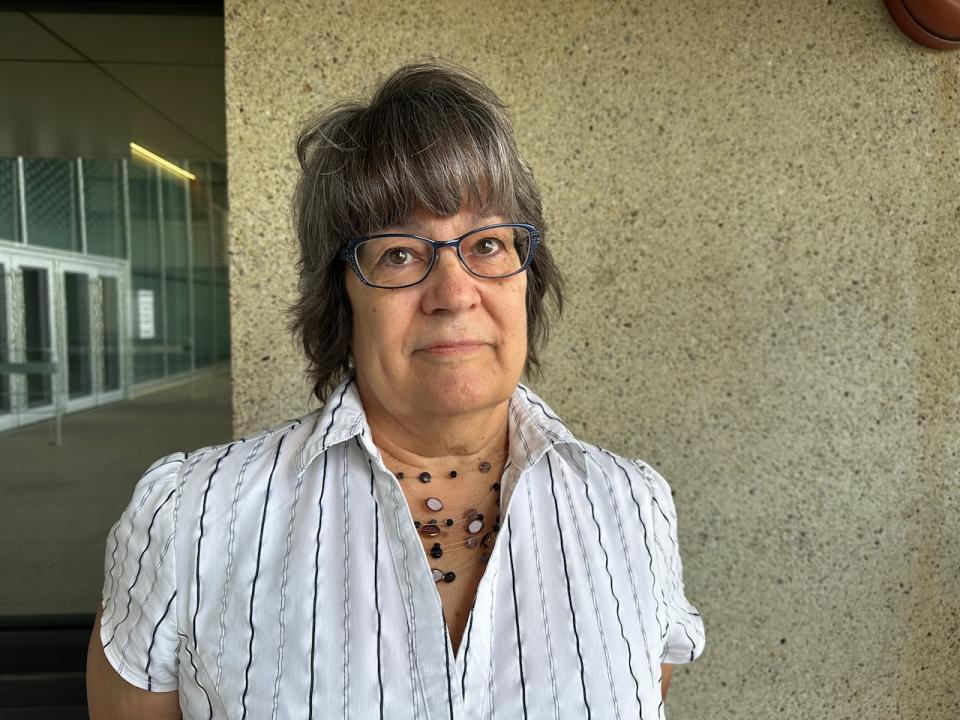Family members of a 23-year-old man who died inside an Edmonton jail say they hope the fatality inquiry into his death leads to changes at the correctional facility.
Timothy James McConnell, who went by TJ, died by suicide at the Edmonton Remand Centre on Jan. 11, 2021.
McConnell had been on a waiting list for Suboxone treatment — a drug used to treat opioid withdrawal — and had pleaded in a health services request form to start treatment, 10 days before he was found unresponsive in his cell.
A fatality inquiry into his death began in Edmonton’s Court of Justice in February and continued this week. On Friday, court heard testimony from two witnesses who had been working at the jail at the time: a correctional peace officer and mental health nurse.
The correctional peace officer, John Diba, testified that he remembered speaking with McConnell twice. He said McConnell told him he had skipped an exercise session because he was about to be released, then McConnell told him the next day that he had a court appearance.
Earlier in the inquiry, in February, a forensic psychiatrist told the court that McConnell had an appointment to see him about a month before his death but did not attend.
Rhonda Bell, who used to work as a mental health nurse at the jail but has since retired, testified Friday that she did not remember McConnell, but upon reviewing his patient records, found his refusal to go to the appointment “very puzzling.”
She said officers would remind inmates of appointments and go to their cells if they did not hear back from them, but people who had not been displaying acute symptoms of mental illness would not be forced to attend appointments.
Bell said during the pandemic, the stacks of health services requests were significant, turnaround time for nurses to process them was longer than normal and inmates with COVID-19 were isolated and distressed.
Diba also talked about the pandemic during his testimony, saying officers could go a few days without interacting with an inmate and there wasn’t as much time to review policies and check inmates’ histories.
He said had he known McConnell had mental health concerns, he may have done more after noticing the skipped exercise session. He said more than one absence in a row would have prompted him to tell a supervisor or nurse.
McConnell’s mother, Lana Greene, who lives in Terrace, B.C., and watched the inquiry online, said COVID-19 seemed to come up as an excuse.
“I understand that of course, the conditions were worse, but it still doesn’t excuse the fact that you don’t understand mental health and substance use and the signs and symptoms of someone needing resources and medications,” she told CBC News.
Greene launched a lawsuit against Alberta Health Services and the province in 2022, alleging negligence in her son’s medical care led to his suicide. The lawsuit is still ongoing, she said, but she could not speak about it.
Georgia Homan Still, McConnell’s grandmother, was in the Edmonton courtroom on Friday.
She said she understands fatality inquiries don’t assign blame but hopes this one will lead to improvements that could prevent other deaths at the jail.
“So many things were missed,” she said.

Georgia Homan Still attended the fatality inquiry for her grandson, TJ McConnell, in Edmonton on Friday, Aug. 30. (Madeleine Cummings/CBC)
Justice Olugbenga Shoyele will write a report on the inquiry for the justice minister and it may include recommendations to prevent similar deaths.
The judge said Friday that he would make serious efforts to scrutinize the evidence and make worthwhile recommendations, “with the hope also that the government will optimistically implement some of those recommendations.”
Both Greene and Homan Still said they appreciated the judge’s remarks.
“It made me feel like he heard TJ,” Greene said.
If you or someone you know is struggling, here’s where to get help:

